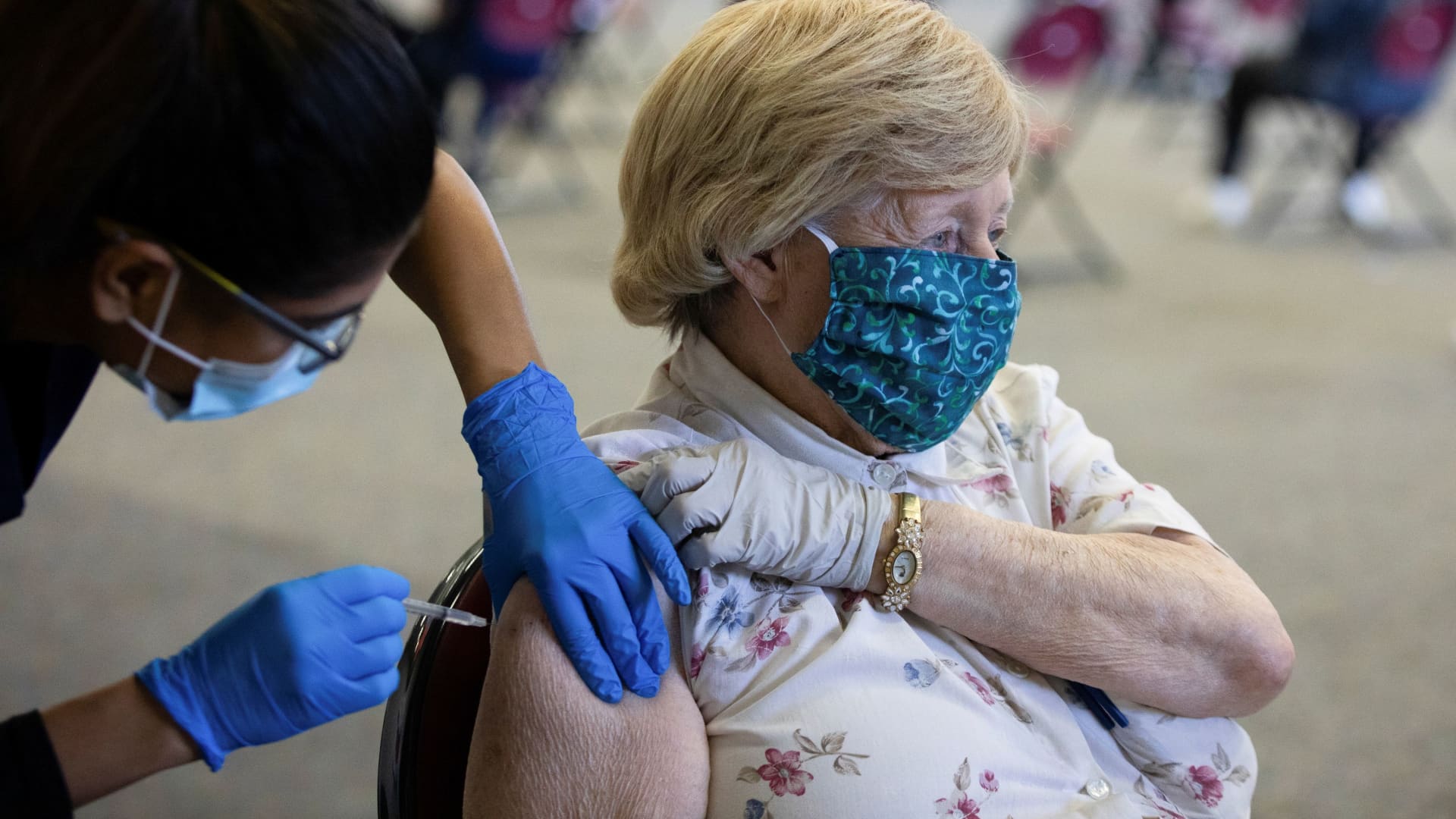The Centers for Disease Control and Prevention on Friday said it is “very unlikely” the Pfizer omicron booster carries a risk of stroke for seniors after it launched an investigation into a preliminary safety concern detected by one of its monitoring systems.
The CDC, in a statement posted to its website Friday, said a surveillance system called the Vaccine Safety Datalink detected a possible risk for stroke in people ages 65 and older who received the Pfizer booster shot targeting the omicron Covid variant. A CDC spokesperson said this issue was first detected in late November.
By mid-December, the CDC concluded the concern was persisting and launched an investigation into whether seniors are more likely to have a stroke in the first 21 days after receiving the Pfizer booster, the spokesperson said. A similar preliminary signal was not detected for Moderna’s booster.
The VSD monitoring system found that 130 people ages 65 and older had a stroke within 21 days of receiving the Pfizer omicron booster among about 550,000 seniors who received the shot, the CDC spokesperson said. No deaths have been reported. The Washington Post earlier reported the news.
No other surveillance system has detected a similar safety concern for the Pfizer booster so far, according to the CDC. Investigators have not found an increased risk of stroke following the Pfizer booster after reviewing data from the Center for Medicare and Medicaid Services, the Department of Veterans Affairs, the Vaccine Adverse Reporting System and Pfizer’s global safety database.
“Although the totality of the data currently suggests that it is very unlikely that the signal in VSD represents a true clinical risk, we believe it is important to share this information with the public, as we have in the past, when one of our safety monitoring systems detects a signal,” the CDC said in the post on its website.
The monitoring systems often detect safety signals that are due to factors other than the vaccine, according to the CDC’s Friday statement. The agency spokesperson said investigators hope to have a clearer picture and more data in the coming weeks.
The investigation will be discussed at an upcoming meeting of the Food and Drug Administration’s panel of independent vaccine experts on Jan. 26.
In a statement Friday, Pfizer said there is no evidence to conclude that ischemic stroke is associated with company’s Covid vaccine. Neither Pfizer and its German partner BioNTech, nor the CDC or the FDA, have observed such an association in numerous other monitoring systems in the U.S. and globally, company spokesperson Kit Longley said.
“Compared to published incidence rates of ischemic stroke in this older population, the companies to date have observed a lower number of reported ischemic strokes following the vaccination with the omicron BA.4/BA.5-adapted bivalent vaccine,” Longley said.
The CDC has not changed its recommendation for the Pfizer omicron shot. Everyone ages 5 and older is eligible for the booster after completing their primary vaccine series. The youngest kids ages 6 months through 4 years old receive the omicron shot as the third dose of their primary series.
